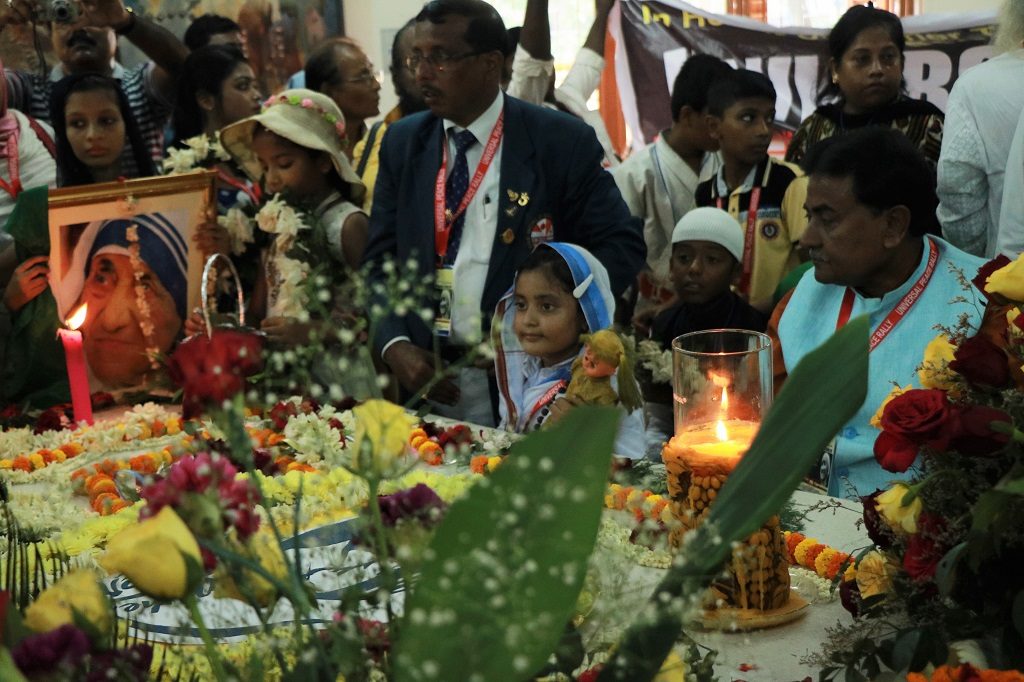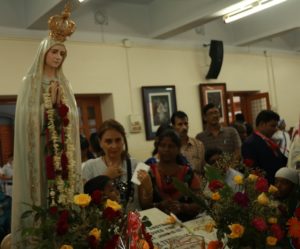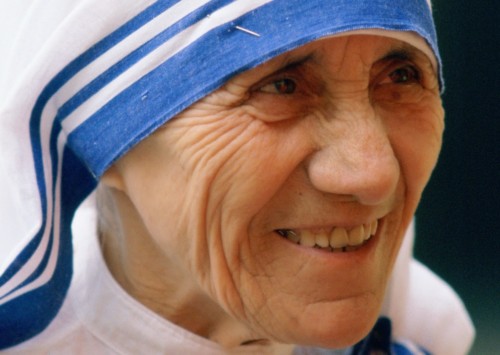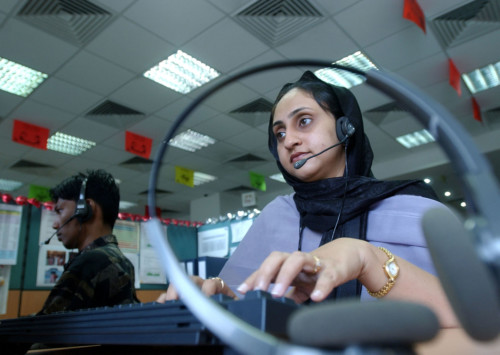Mixed opinions prevail over the canonization of Mother Teresa

Gathering at the Mother House on Monday morning to commemorate the sainthood of Mother Teresa
On a rainy Sunday in Kolkata, as believers of humanity from across the world gathered at the Mother House, the headquarters of Missionaries of Charity, critics came down heavily on the canonization of Mother Teresa. Social media saw heated debates over whether Mother Teresa was the saint of darkness or light.
“My belief in what Mother Teresa stood for was reaffirmed when I read a very popular quote by her. The quote was – We do not need bombs and guns to bring peace, we need love and compassion. At a time of religious conflicts around the world, we can either look at it as a socio-political propaganda under the mask of religion, or we can take it literally by following it. If today’s development can make the oppressed around the world feel that somebody fearless who stood for the cause of getting rid of oppression is inspiring other people, I do not see a problem in it. Instead of getting embroiled in the White Supremacy debate, I would rather look at it as a message for people to unite and celebrate the goodness of religion. No, as a believer of the faith, I do not say this to make Christianity sound superior to any other religion,” logically deduced Florik Khazarian, a researcher of Christian Iconography in Armenian Silverware from Yerevan, Armenia, who was present at the celebrations in Mother House, Kolkata.
The celebrations witnessed the coming together of thousands of people from various countries and faiths. Lorena from Mexico beamed under a drizzling sky at the 66 year old building which was lit in blue and smelled of a concoction of fresh flowers. “I feel blessed. She is a Saint of your, mine, our time, and our lifetime. It feels very special to be here with so many different kinds of people who have come together in the name of goodness,”she said. Yet the socio-political implication of the canonization of Mother Teresa in the climate of global religious intolerance remains to be discerned with precision.
The Implication of Faith

Visitors from all corners of the world thronged to experience the event
“Between 1588 and 1988 the Vatican canonised 679 saints. Under John Paul II alone (as of June 1995), there have been 271 canonizations and 631 beatifications. Several hundred cases are pending, including the petition to canonize Queen Isabella of Spain. So rapid and general is the approach that it recalls the baptism by firehose with which Chinese generals Christianised their Army,” noted Christopher Hitchens in The Missionary Position: Mother Teresa in Theory and Practice, a 128-page essay critiquing the life and philosophy of Mother Teresa, challenging the mainstream media’s assessment of her charitable efforts.
In agreement with Hitchens’ philosophy of how the questioning of miracles is received as a personal offense for a commoner despite glaring facts and figures, Souvik Mondal, professor of the department of sociology, Presidency University, Kolkata states, ” Just the way I am critical of the policies of Ramkrishna Mission and the Vishwa Hindu Parishad, I am equally disapproving of the sainthood.”
Aadil Mir, an engineer from CDM Smith, Srinagar, Jammu and Kashmir argues, “Transforming anybody’s life in any way, for the better, to me qualifies as a miracle. Even if an individual manages to change a single person’s life, they should be rewarded for it. If somebody inspires people to do it, the larger picture simply means that goodness in the world will prevail.”
Royina Saha, a student of Presidency University, commented on the implication of religious supremacy, “Had the same reasonable accusations of the illogical miracles of faith and the charges of corruption been pitched against an icon of Islam, people would have recommended nuking the Middle East. Mother Teresa is a religious hangover. It will take us a while to accept the criticism against our god-men and women.”
Father Ebin from Christ University states, “For me it is not about the celebrations in Kolkata as much as it is about a feeling of responsibility that has overcome me to want to live a life of fearlessness, humility and standing by people in their times of need. As a priest, I want to live my life like Mother Teresa.”
A Hashtag Sensation

A kid at the Mother House writing a prayer
As #FraudTeresa rages on the Internet, Somak Ghosh, a radio jockey at Radio Mirchi, opines, “The Vatican is an established order that has been in the practice of canonizing certain people for centuries. That will not change because of a few hashtags. And simultaneously, calling someone a saint does not, make that person a magician. Mother’s contribution to society has impacted people. People who are spiritually inclined have become so because of very personal and compelling reasons. Hence, a social media autopsy would do little to tamper with their belief. .”
As the justifiability of both the sides of the coin is evident, what remains to be seen is whether the unwavering belief in Saint Teresa of Calcutta as an exemplification of humaneness and a messiah to the poor in the country and beyond, finds itself implemented in an unbiased fashion.












